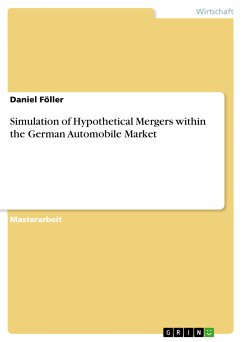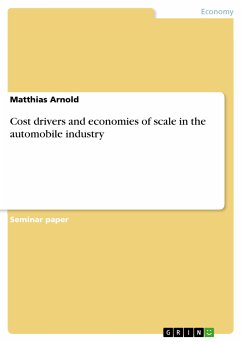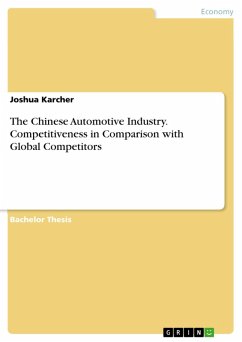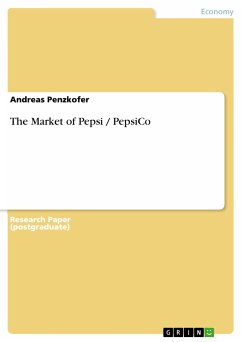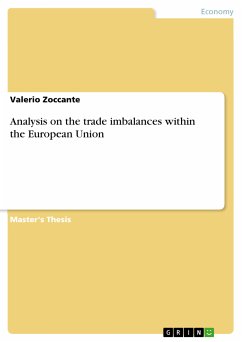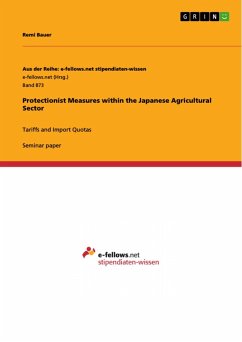Masterarbeit aus dem Jahr 2012 im Fachbereich VWL - Industrieökonomik, Note: 1,0, University of Warwick, Sprache: Deutsch, Abstract: In this paper we use standard merger simulation techniques to compare the effects of three hypothetical mergers within the German automobile market. The simulation is conducted in three steps. Firstly, by applying a two-level Nested Logit model we estimate the demand for and then present stylised facts on the purchasing behaviour of German consumers. Secondly, conduct is modelled as Bertrand-type to simulate the pricing behaviour of manufacturers. In the third step, we adjust the market structure according to the respective merger cases and reestimate supply and demand to simulate price effects. Our results suggest that welfare changes are only significant if German producers are involved. Furthermore, we find extensive differences across the market segments. Whilst mergers have virtually no consequences for the pricing of subcompact vehicles, we predict a considerably large effect within other car segments, such as luxury cars.

